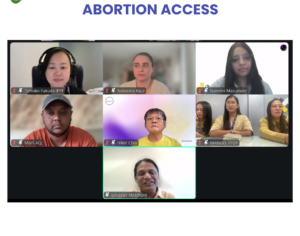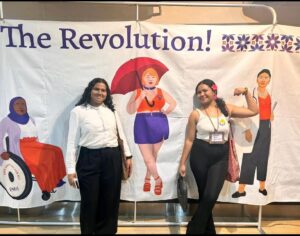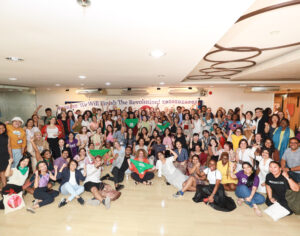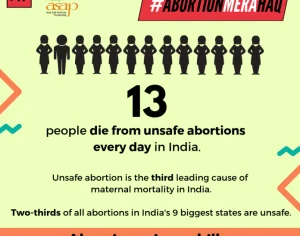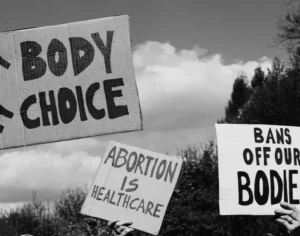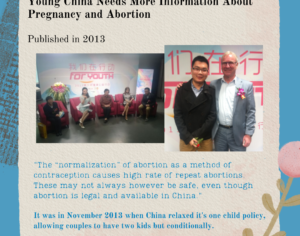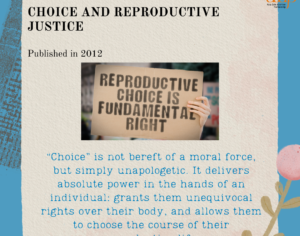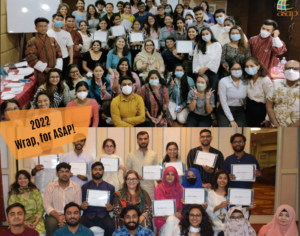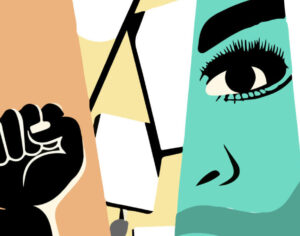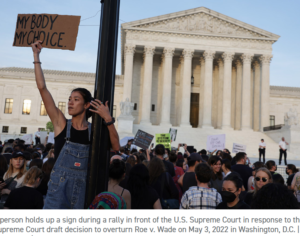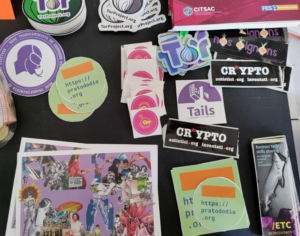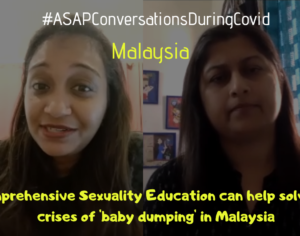Abortion in Ireland: The Injustice and Day-to-Day Terror Faced by Countless Women
The ban on abortion in Ireland affects several women everyday. Savita Halappanavar’s recent death showed that some women pay with their lives. But there are others too, who are forced to endure hardships because of Ireland’s restrictive law that does not permit them to choose the outcome of their pregnancies. In this article published yesterday on RH Reality Check, Sarah Fisher of the Abortion Support Network writes talks about these women.
As an organisation that hears first-hand from the women who bear the burden of Ireland’s archaic abortion laws, the tragic death of Savita Halappanavar was shocking and sickening.
And yet not as surprising as you’d think.
Given that abortion laws in Ireland are among the strictest in the world, a tragedy of this kind wasn’t so much a matter of if, but when. The circumstances in which Savita died are truly abhorrent. Admitted to hospital experiencing a miscarriage at 17 weeks, despite being told that the fetus “wasn’t viable” she was made to suffer for days, left begging for an abortion that she was refused as long as there was a foetal heart beat.
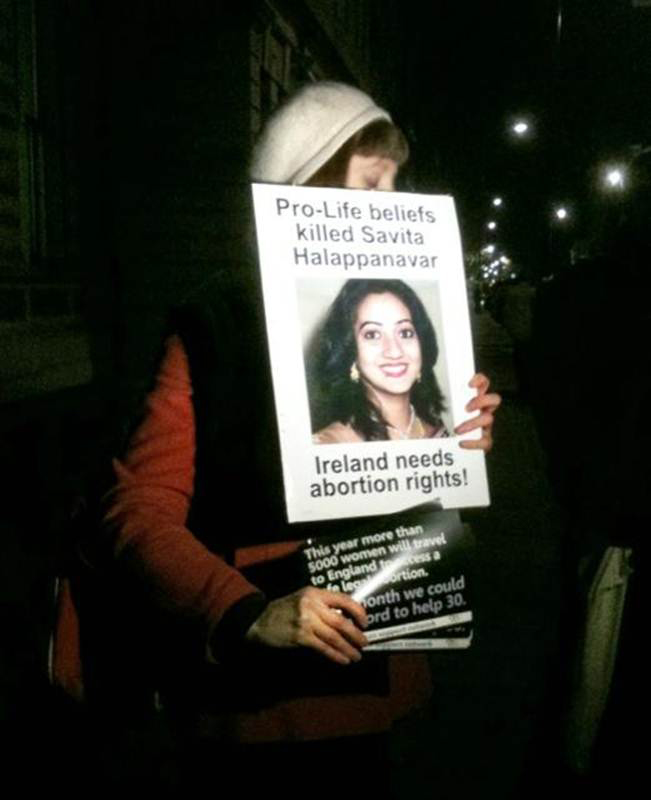
Haunted by the harrowing details of Savita’s death we’re left to wonder how many more women in Ireland may have lost their lives as a result of being denied a life-saving abortion.
If Savita’s family hadn’t bravely made the decision to go public, would her senseless death have come to light? Have the lives of more women been sacrificed because a fetus was deemed more important? Even when it was known that the fetus would not survive? When, technically in Ireland an abortion is permitted if there is a “real and substantial risk to the life of the mother?” These are questions that we cannot ignore and questions that demand answers.
Savita’s death is the worst illustration of what happens when abortion is highly restricted, and the worst way for the ‘pro-life’ lobby to be proved wrong. How often do we hear that abortion is never necessary to save the life of a woman? A protester at a vigil for Savita hit the nail on the head with a placard stating ‘Pro-Life beliefs killed Savita Halappanavar – Ireland needs abortion rights.’ So did Kartha Pollit in her compelling reflection on the case When ‘Pro-Life’ kills.
But what has been absent from the mainstream media coverage of Savita’s death has been the mass, day-in day-out misery and discrimination experienced by women as a result of the near-total ban on abortion in Ireland.
Because for every tragic death like Savita’s there are many, many more victims of Ireland’s abortion laws who, though they don’t pay with their lives, are made to endure hardship, shame and violations of their basic rights. It’s also important that their plight isn’t ignored.
At Abortion Support Network we’re all too aware of this, because these women or their friends or their partners call us on a daily basis, desperate and often with no place else to turn. We’re a small, all-volunteer organisation based in London and our sole purpose is to help as many of the 5000+ women in Ireland and also Northern Ireland who each year are forced to travel to England simply to access a safe and legal abortion. Or to put it another way, to get a common medical procedure that they should be able to have in their own country.
While many other groups campaign tirelessly for much-needed legal reform in Ireland and Northern Ireland (IFPA, FPA Northern Ireland, Alliance for Choice and Choice Ireland to name just a few), we support the women paying the price right now. We do this by providing practical support in the form of accommodation and confidential, non-judgemental information, and most importantly with money to help towards the costs of their procedure and travel. We help women with this financial support in the same way that abortion funds in the United States do; by simply giving it to women as and when we can. Abortion Support Network is the only United Kingdom abortion fund and was founded by Mara Clarke, an American who previously volunteered with Haven Coalition.
For some women in the early stages of pregnancy we’re able to help them to access a safe and affordable medical abortion at home by directing them to the fantastic, trustworthy and life-saving organisation Women on Web.
As for any abortion fund, the women who call us come from all walks of life. Some of the women we help are in their early twenties or younger, others are in their thirties or forties. Some have children, some don’t. They include women who have experienced domestic abuse or rape, asylum seekers, disabled women, those with wanted pregnancies affected by severe fetal anomalies and women for whom it is simply their choice not to continue their pregnancy.
What these women have in common is that the journey they make to access a safe and legal abortion is a difficult one and they are in need of our support.
The other thing that the women who contact us have in common is that they are poor. In addition to having to pay for a procedure that women living in England, Scotland, and Wales can access for free on the national health service, women traveling from Ireland and Northern Ireland have to pay for their abortions as well as travel costs and in some cases accommodation. Costs for this range from $600 to $3,100, plus any loss of income from missing work or childcare required. It’s common for women to skip rent payments to pay for an abortion, to have to lie to friends and family to get the money they need, to go to loan sharks, to return Christmas presents, and of course for the ones that hear about Abortion Support Network, to make a phone call to a complete stranger in another country to ask for money. At its most extreme this means that women with money can have an abortion and women without money are forced to bear and give birth to children they otherwise decided they could not afford or were not ready to have at that time in their lives.
On top of the financial hardship and stress there’s the emotional toll. Many women have to keep their pregnancy a secret back home. These women are extremely isolated and make the journey alone. The turmoil often includes feelings of shame and guilt. Perhaps because their own doctor has told them that they are being selfish considering an abortion, perhaps because they’ve grown up being told that having an abortion means you’ll go straight to hell.
For some women anger and frustration is the dominant emotion; at being treated like a second class citizen in their own country, or like a criminal for trying to make a decision that they feel is not only right for them, but also for their family. For others it’s confusion, particularly if they’ve visited an anti-choice ‘crisis pregnancy agency’ and been fed the usual lies about being left infertile or getting breast cancer. There’s also sheer panic and despair, for example when they can’t book a plane ticket because they haven’t got a bank card, or if they need to get a passport but it may not arrive in time. Lastly, there’s loss: we have heard from several couples who have learned that their wanted babies are affected by fetal anomalies that are incompatible with life. Still they are denied an abortion.
When you’re on the other end of the phone you listen to their heart-breaking stories and you’re all too aware that there’s only so much you can do to help.
There have been times when women have had no choice but to return home and have a child, because they arrived at the clinic only to discover that they were over the legal limit. It’s impossible to count how many times we’ve heard ‘he wants nothing to do with it’ or ‘I cannot even afford to feed the children I have.’ Some women have to whisper down the phone or call at a certain time of day, because their parents will throw them out if they knew, because they can’t let abusive partners find out, because they don’t want their neighbours to know. We’ve even had women threaten to commit suicide if they don’t get an abortion. For many women the question of ‘choice’ is meaningless: continuing with the pregnancy is not an option.
When a woman reaches out to us it’s impossible to know exactly what she is going through. But sadly we do know what it feels like to have to say no to her, because we we’ve heard from another five women that day and don’t have the funds to help her. We know what it’s like to be left wondering if the reason a woman hasn’t called us back is because the violent boyfriend that she was trying to escape has found out. We know what it’s like to hear a grown man cry because his 14 year-old daughter has been raped.
And now we know what it’s like to weep for a woman whose life has been lost.
Our only hope is that Savita Halappanavar’s death has not been in vain. What must come of her death and the public outrage that has ensued is justice not only for Savita, but justice for each and every woman made to suffer at the hands of Ireland’s abortion laws.
Donations via the Abortion Support Network website are gratefully received. http:www.abortionsupportnetwork.org. Abortion Support Network is part of the US-based National Network of Abortion Funds.

